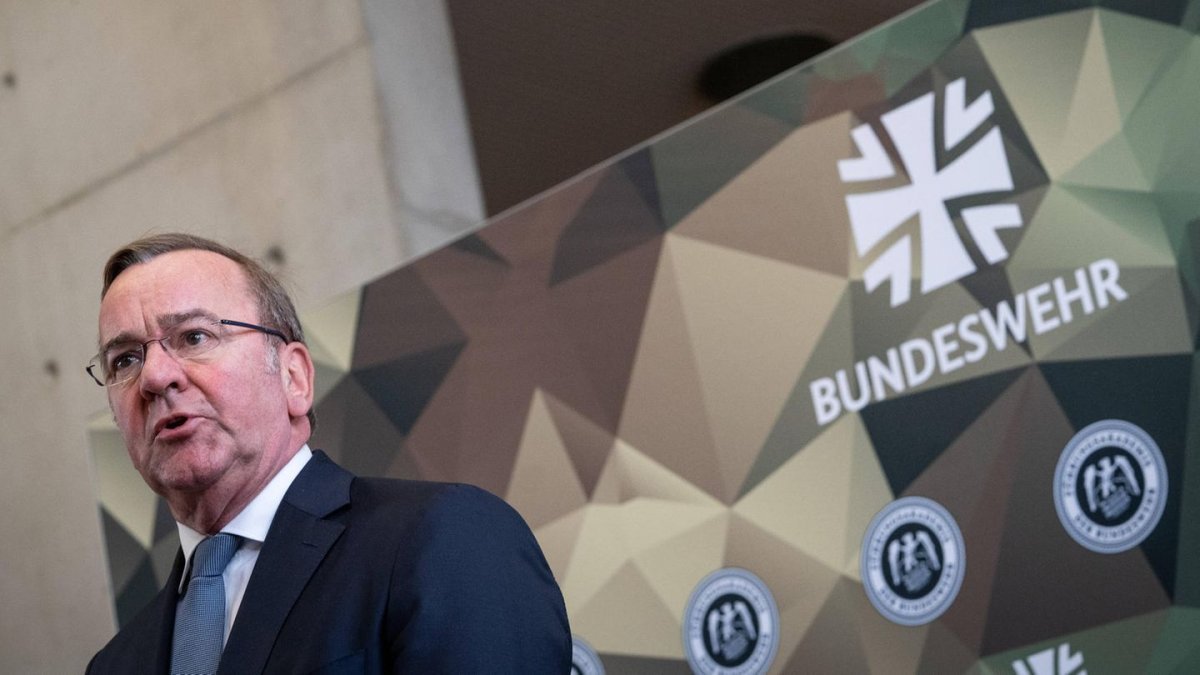In the midst of unprecedented efforts to reform the Bundeswehr, German Defence Minister Boris Pistorius has stated that society should be prepared for war. His remarks come against the backdrop of sweeping reforms of the German armed forces.

Boris Pistorius, Germany's Minister of Defence, declared that Germany must be prepared to defend itself, according to Sarbaz.kz, citing ZDF.
In his view, both the Bundeswehr and German society must be ready for war in Europe.
"Germany must take a defensive position; this pertains to both the Bundeswehr and society. We must be prepared for war," the Minister added, assuring that Germany is doing everything it can to prevent further escalation of the Middle East conflict.
Pistorius disagreed with the opinion that the federal government is reforming the Bundeswehr too slowly.
"It can't be done any faster. Everything that was destroyed over 30 years cannot be rebuilt in 19 months. However, by the end of this decade, Germany will be in a completely different position," he emphasised.
As the Minister explained, since the conflict between Russia and Ukraine began, a special Bundeswehr fund of €100 billion has been established, and changes have been made to its structure.
Too Many Promises
It's worth noting that Boris Pistorius has made numerous statements regarding the modernization of the army in recent months. According to him, procurement should occur more rapidly, personnel recruitment should be more efficient, and the army's conditions and funding need to be improved. Alongside the promises of Bundeswehr reforms, Pistorius has made geopolitical commitments.
For example, in early October, the Defence Minister promised that Germany would send more soldiers to Kosovo if the situation required it. However, this statement was met with skepticism among German experts. Ironically, the homeland of maneuver warfare doctrine is having problems relocating combat units. According to Zeit magazine, the Bundeswehr lacks heavy transport aircraft and helicopters. German troops were withdrawn from Afghanistan using leased planes.
In late September, as part of defending the Baltic States from potential aggression, Pistorius promised to permanently deploy a Bundeswehr brigade in Lithuania. However, the proposal to send 4,000 soldiers to Lithuania was also met with skepticism. For the first time in a long time, Pistorius' ratings were shaken, despite being one of the most popular politicians in Germany.
"We are a volunteer army. We can't force anyone to move to Rukla, which is in the middle of nowhere. We need living standards there, a German school for children, and opportunities for partners to work there. The brigade for Lithuania is not included in the current budget. Deploying a brigade in the Baltics will cost four to six billion euros," said Florian Hahn, representative of the defense policy faction of CDU/CSU.
Florian Hahn also explained that the Bundeswehr currently lacks both personnel and funds to deploy an entire brigade, and it likely concerns strengthening already deployed NATO units in Lithuania.
Pistorius' Reforms
As reported by Zeit publishers, Pistorius fears extensive reforms and relies on numerous small steps. In September, he promised to build new barracks and modernize infrastructure. However, the Bundeswehr's investment portfolio for construction stands at 24 billion euros, and Pistorius failed to secure an increase. Despite an application for an additional 10 billion euros, the Bundestag approved only 1.7 billion euros.
The Bundeswehr's personnel composition remains another issue. To maintain the current level of 180,000 soldiers, 20,000 new employees are required annually, but the armed forces actually need expansion. By 2031, it is expected that 203,000 men and women will serve in the armed forces. However, the Bundestag is already planning to abandon this plan, established during Ursula von der Leyen's tenure.
"When it comes to personnel recruitment, existing plans are either too ambitious or even unattainable. Demographics do not allow an increase in the Bundeswehr's numbers," says Johannes Arlt, an SDP defense policy expert.
The main problem of the Bundeswehr remains the restructuring of government procurements. Armaments and technology still require a considerable amount of time before they reach military units. Despite active deliveries of equipment to Ukraine from the Ministry of Defense's inventory, the army has yet to replace anything.
Air defense, in particular, is suffering and is barely covered by orders for Iris-T and Arrow 3. The purchase has become somewhat less bureaucratic thanks to the "Bundeswehr Procurement Acceleration Act." However, even the Minister himself does not claim that this bureaucratic monster has been eliminated.
"In the field of procurement, much has been achieved, but we have not yet reached what we want," Pistorius says in an interview with Welt.
Since the beginning of the year, his ministry has submitted 31 procurement proposals to the Bundestag, totaling around 21 billion euros. However, many years will pass before the Bundeswehr balances its equipment, let alone expands. For example, the production rate of the Leopard 2A8 is two tanks per month.
Another classic example of procurement complexity is the modernization of digital radio equipment, which cost 1.3 billion euros. The technology was purchased, but apparently, nobody has taken care of installing devices on 200 different car models. German soldiers still cannot communicate safely with their allies. The NATO military commissioner's annual report stated that Germans on the eastern NATO flank were considered "the weakest link in the chain" among partner armies because they lacked digital radios.